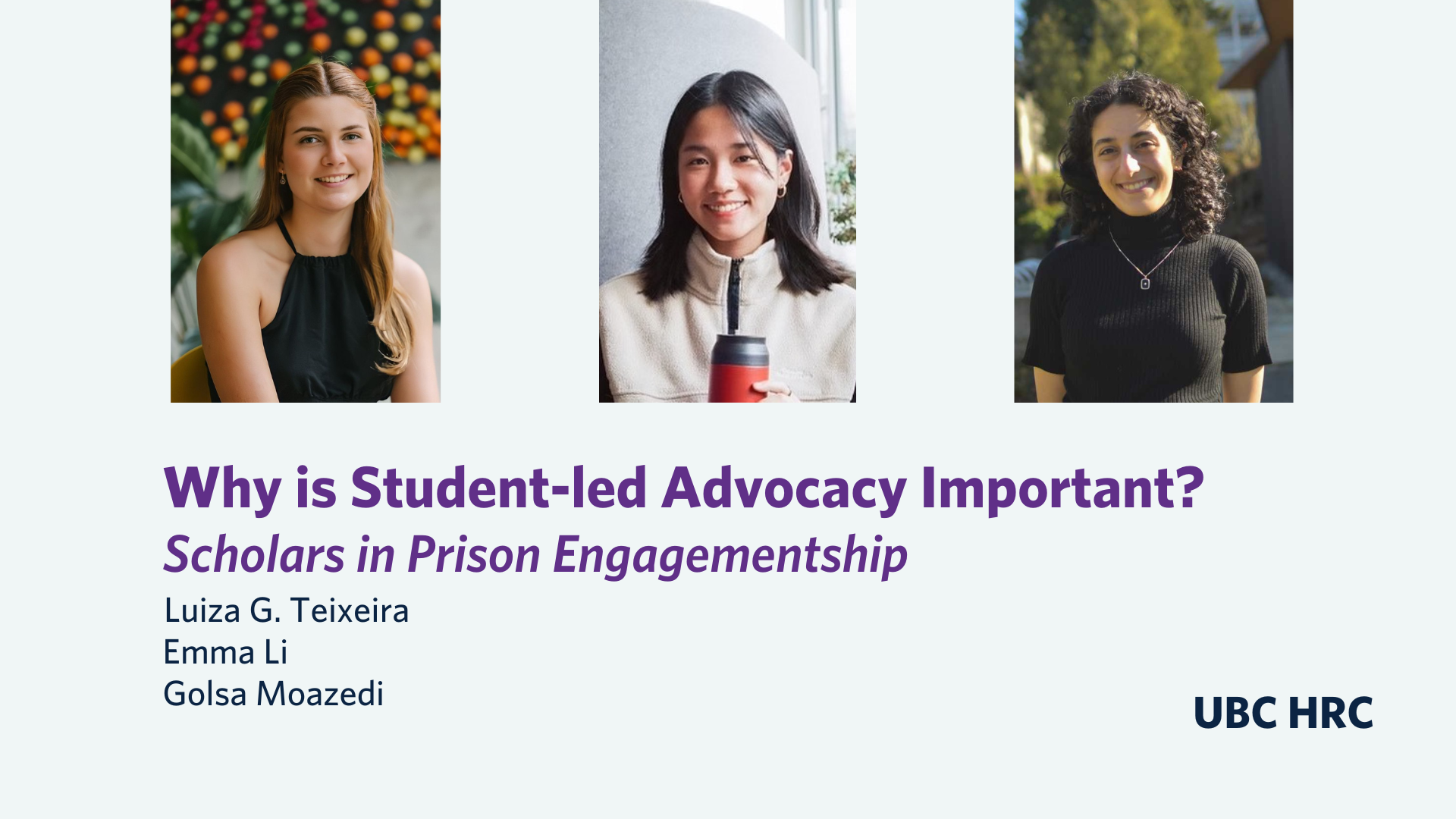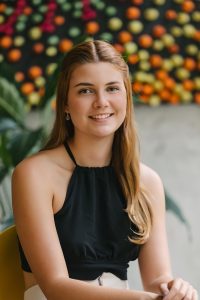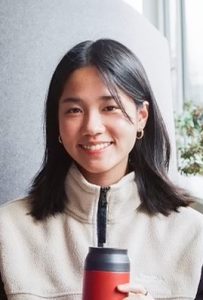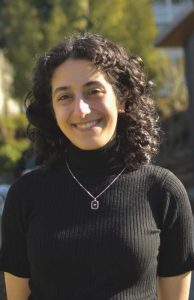
The Scholars in Prison Engagementship is one of the co-curricular programs offered by the UBC Human Rights Collective housed within ORICE and our global community partner, Scholars at Risk (SAR) Network.
The engagementship is a two-term program which began in September 2022. Students in this engagementship have been engaged in research and scholarly informed activism in support of freeing wrongfully imprisoned scholars and students around the world. In the annual report by Scholars at Risk’s Academic Freedom Monitoring Project, the Free to Think Report 2022 highlights the Scholars in Prison project of which UBC students in this program are part of a collective effort of advocacy. We asked program participants Luiza Teixeira, Emma Li, and Golsa Moazedi on their reflections of the work they’ve done so far.
Q: Why do you believe student work is important to the larger Scholars in Prison Project and to the work of SAR?
LT: Students are at the forefront of this fight [for academic freedom] and as so are one of the groups most directly affected by government censorship and violence. It is absolutely crucial for students with the privilege to think and speak freely to be putting in the work through advocacy. This engagementship provides students with a deeper understanding of what constitutes infringements on the right to academic freedom and of what policies are in place, or should be in place, to solidify it as a human right.
“It is absolutely crucial for students with the privilege to think and speak freely to be putting in the work through advocacy.”
EL: Student work encourages those who are vulnerable to know that they are not alone in this fight, and to see people their age advocating on their behalf. Scholars At Risk is an issue that immediately impacts young people in educational systems, whether liberal or not. The less someone gets to speak and learn freely, the smaller their voice becomes in the global arena, and a world with less voices is a dangerous place. Thus, student involvement with SAR’s should be about raising more voices, so as to empower young people and promote their abilities to exercise their academic freedom.
GM: As students in higher education, the work we do in SAR’s Scholars in Prison project brings significant insights from undergraduate students and the pursuit of academic freedom not only in Canada but upholding that human right on the international scale. By being part of this engagementship, students develop a deeper understanding of academic freedom both in its definition and what it means to us as students in higher education as we investigate imprisoned scholars who have been stripped of it in its entirety.
Q: What is one major reflection or lesson learned so far in this engagementship?
LT: I came to understand how fortunate I am to be able to study, research, and learn without the fear of any penalization, such as expulsion or incarceration. Looking into the wrongful imprisonment of students in Belarus, I felt deeply impacted by their case. I came across some of their photos and could easily imagine them walking down Main Mall alongside me and the UBC student body. It is an incredible injustice that they were so violently treated for attempting to exercise the rights that we benefit from so freely. As students who do have the ability to speak up, we must use our privilege to spotlight silenced voices and advocate for those who cannot do so for themselves.
“With more empathy and more remembrance, we come to see that advocacy is not a moment or event, but a way of life that should transfer into our actions, thoughts, and words.”
EL: One major reflection I’ve made is the idea of cultivating empathy against indifference, and choosing to remember as opposed to forget. Media and society often dictate what trends we hear, and which voices should be spotlighted. It is paramount to fight against that current which rarely enables long-term and proactive justice for issues around the world. With more empathy and more remembrance, we come to see that advocacy is not a moment or event, but a way of life that should transfer into our actions, thoughts, and words.
GM: Something that really stuck with me was learning how systemic restriction of academic freedom can be extremely sophisticated to destroy it entirely. As part of the group monitoring the cases of Iran, we had the opportunity to attend a lecture discussing academic freedom in Iran and how it is now virtually nonexistent due to the extreme authoritarian control over nearly every sector related to education. It really opened my eyes to how countries can truly suffocate the voices of scholars in any and every capacity which is something my group mates and I held in our minds as we proceeded through our project.
The Scholars in Prison Engagementship is currently working on implementing their advocacy plans for scholars in China, Egypt, Iran, India and Belarus. On March 29th, the group will be heading to Washington, D.C. to attend SAR’s Student Advocacy Days. Check out UBC HRC on Instagram for more updates on Advocacy Days and UBC Students for SAR on Instagram to follow their advocacy work.
Interested in joining the Human Rights Collective staff team? Check out our current work learn postings for the summer!
About the Students


Luiza G. Teixeira (she/her)
Luiza is an international student from Rio de Janeiro, Brazil. She is currently in her fourth and final year at UBC, majoring in International Relations and minoring in Law & Society.


Emma Li (she/her)
Emma is a third-year International Relations major who enjoys a range of topics from international development, foreign aid, migration, and particularly research focussing in on studies from Africa and the Middle East. She enjoys music, coffee, and literary fiction in her spare time.


Golsa Moazedi (she/her)
Golsa is in her fourth-year majoring in Psychology and minoring in Law & Society. Upon taking some courses for her minor, she developed an interest in topics surrounding the ‘Middle East’ and now is interested in delving further into learning more in any capacity.


